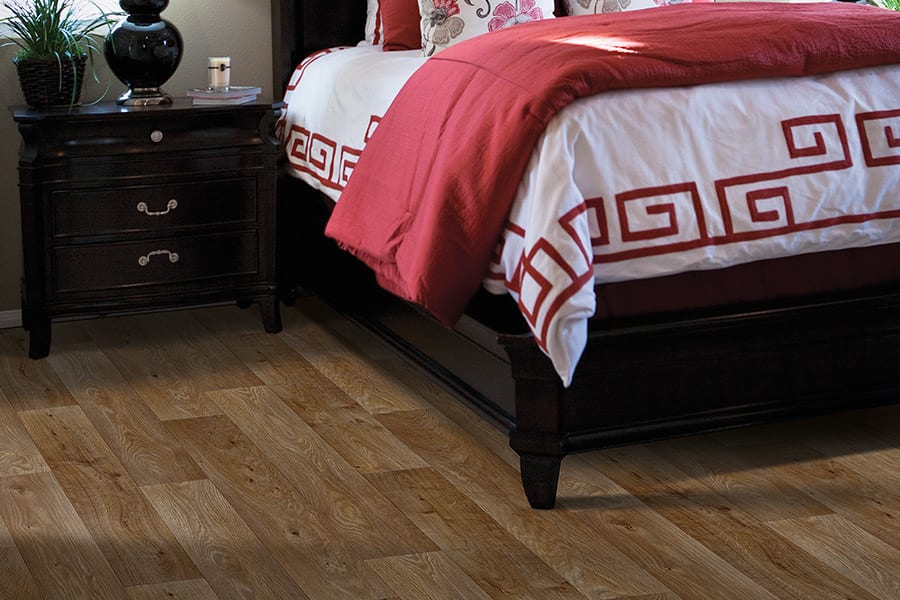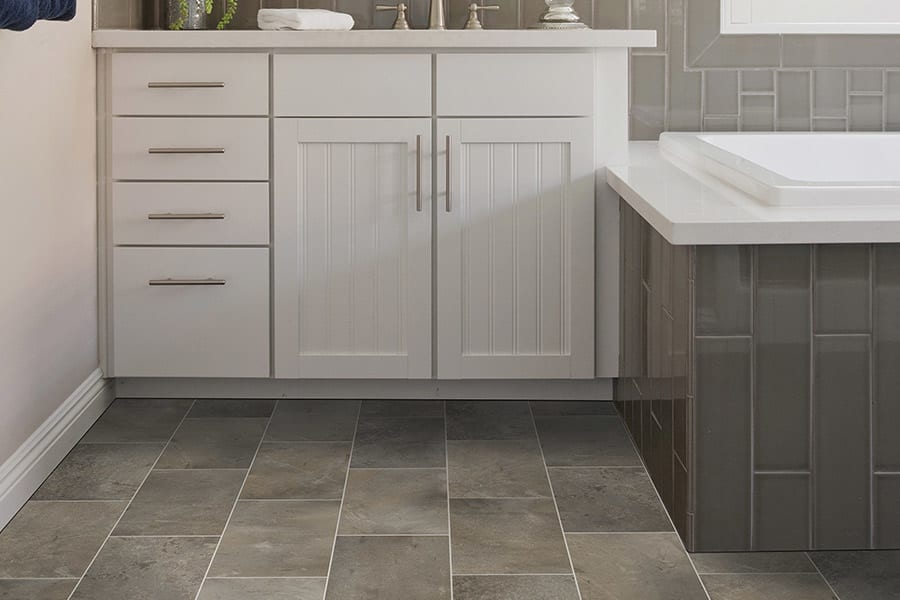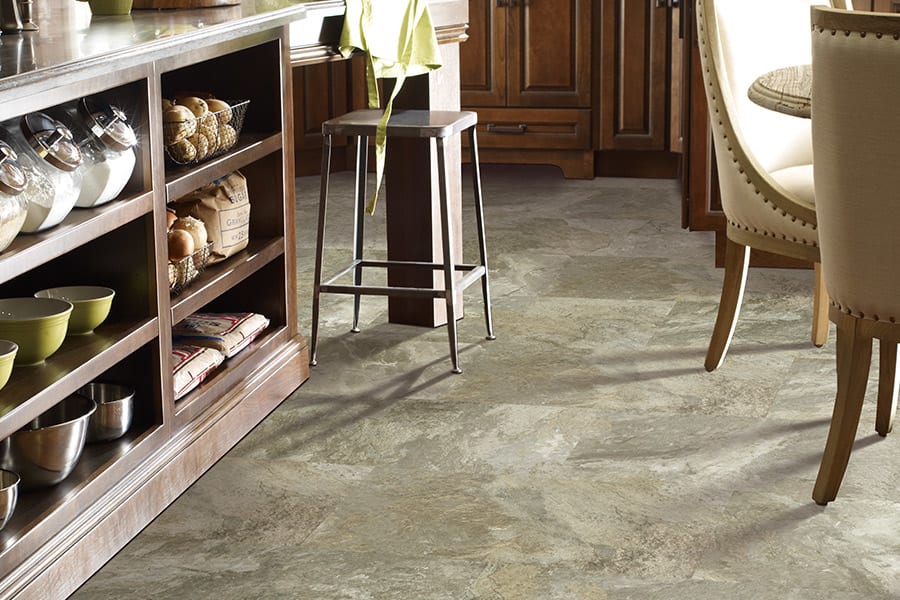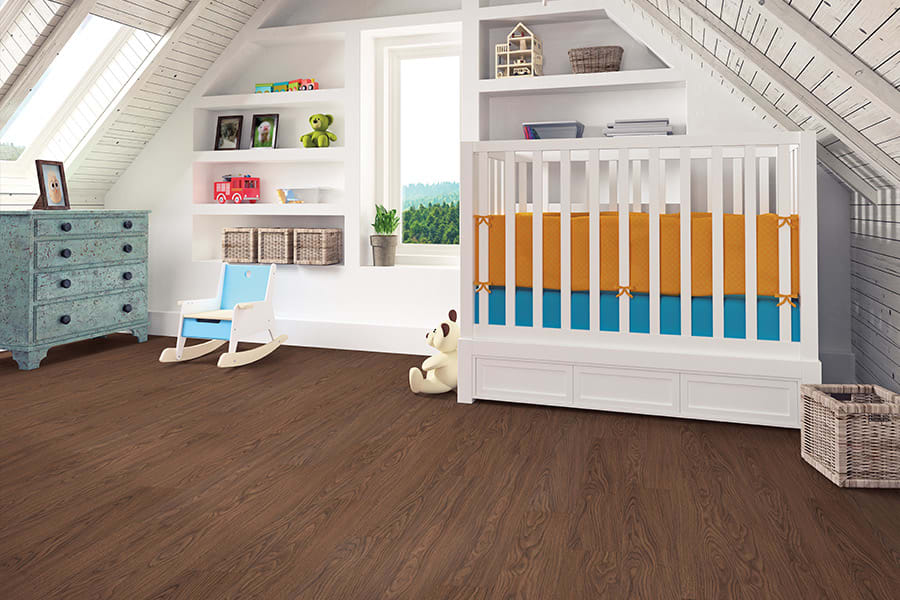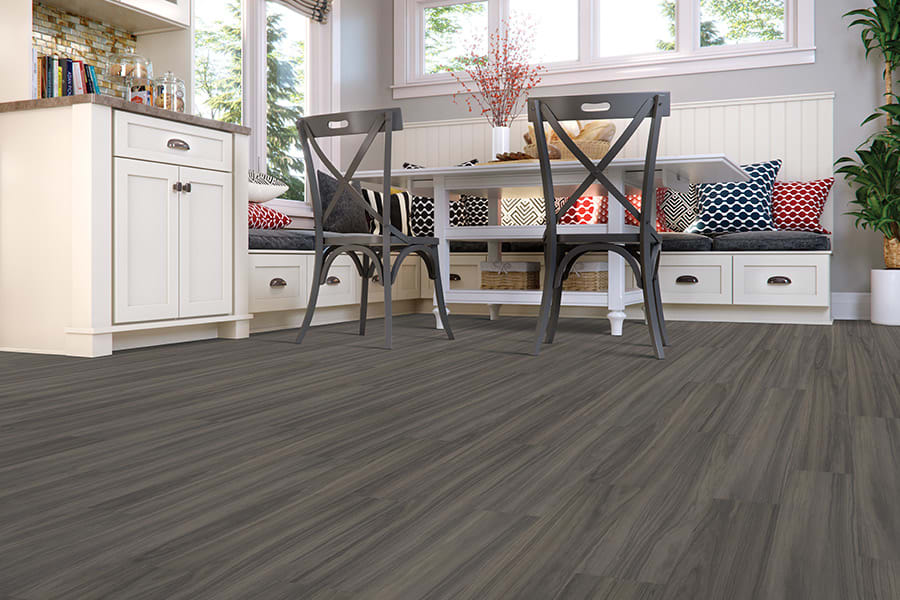Request an estimate
Vinyl flooring application styles
Vinyl flooring has been synonymous with duraility. With hundreds of styles, colors and options vinyl flooring may be the right option for your home.
Sheet vinyl
Similar to the style used in kitchens for years. It is usually 12 feet wide and can be loose laid (no glue) or glued down depending on the size and shape of the room.
Luxury vinyl tile (LVT)
This is the most popular type of vinyl flooring. It can be glued down or clicked together and simply dropped in place. LVT is used in hospitals and schools because of its durability and ease of maintenance.
Questions to ask about vinyl flooring
- Does the installer glue it down or “float” it over the old floor? There may be many reasons to use one style or the other—your flooring professional will know the answers.
- How thick is it? Every manufacturer builds vinyl differently. Look at the thickness of the vinyl wear layer—12 to 20 millimeters is pretty common. The thicker the better.
- What’s the pattern resolution? The pattern, or image, on the flooring is a photographic image that is protected by layers of vinyl. Look for high-resolution images.
- What is the repeat of the image? You may notice the pattern repeat in a cheaper floor.
- How easy is it to repair gouges? All floors will gouge. Some LVTs can be repaired easier than others. Ask us about what would be best for your floor.
Other vinyl flooring considerations
- Glued floors will need either a 1/4″ sub-floor or properly smoothed concrete.
- Vinyl floors can expand with heat. Like any floor, you should protect it from heat above 140 degrees (if you need blinds, trust only Hunter Douglas).
We can help!
Finding the right flooring for your home is no simple matter. Please call or come into our Ann Arbor showroom and talk to one of our interior designers—it’s just one part of our service to you!


